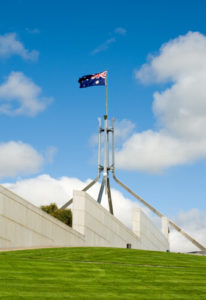Australia’s Unfinished Whistleblower Business

It hasn’t been a great week for Australian whistleblowers.
Two days ago, the Guardian revealed that the Australian Home Affairs Department had inadvertently revealed the identity of a whistleblower by mistakenly sending confidential written materials to another, unrelated complainant’s email address. The Department apologized for the “blunder,” which is a criminal offense in Australia.
A week ago, Australian Senator Rex Patrick accused the Australian government of waging a “war” on four whistleblowers who exposed various schemes that the government wished to remain under wraps. The whistleblowers revealed several unrelated shenanigans, including the government’s attempt to spy on another country vying with Australia for oil reserves in the Timor Sea; an attempted cover-up of war crimes in Afghanistan; and overly aggressive government debt-collection practices. The government spent $3 million bringing criminal prosecutions against the whistleblowers, and they continue to pursue the charges.
Perhaps the only silver lining revealed by these Keystone/Bad Cops escapades is that whistleblowing is alive and (mostly) well in Australia.
Australia is experiencing growing pains associated with the country’s fledgling steps to encourage and protect whistleblowers. As we previously reported, in 2017 Australia solicited feedback on a group of possible whistleblower protection and reward measures. At the time, we urged the government to adopt not only laws that would provide whistleblowers with assurances of confidentiality and protection against retaliation, but also financial rewards to encourage them to risk their livelihoods and safety.
They adopted half of our suggestions. A new law took effect on January 1, 2020, which provided strong protections for whistleblowers. The law covers those who expose many kinds of fraudulent activity, including schemes that pose a “danger to the public or the financial system,” securities law violations, criminal conduct that rises to the level of a felony, and even an “improper state of affairs or circumstances.”
Whistleblowers can report to a Member of Parliament or to the press, but only after making an internal report and waiting 90 days to allow the company to remedy the problem.
Violations of the confidentiality or anti-retaliation provisions can result in steep fines and even criminal prosecution.
We call that a good start.
The next step is to finish the job, enacting rewards programs to supplement the anonymity and protection regime. According to reports in the press, the opposition Labor Party has considered measures to adopt such rewards, but we have not seen much recent activity.
It would be a wise move. As we urged in our previous comments to the Australian government, whistleblower programs are far more effective if they include rewards. To immodestly quote our own blog post, “Rewards are just and necessary because they compensate whistleblowers for what will almost certainly be a tiresome and unpleasant ordeal. The risk of retaliation or some form of estrangement, alienation, or even blacklisting remains very real. Financial incentives not only encourage whistleblowing, but also provide some measure of just recompense for the significant hardships so many whistleblowers suffer for speaking out.”
We hope Australia is listening.
READ MORE:
- The whistleblower report of the Parliamentary Joint Committee on Corporations and Financial Services
- C|C Submission to the Committee
- The Australian Securities Commission and Federal Police support for greater whistleblower protections
- Comments to the Australian Parliament: Reward your Whistleblowers
Tagged in: Importance of Whistleblowers, International Whistleblowers, Whistleblower Eligibility,